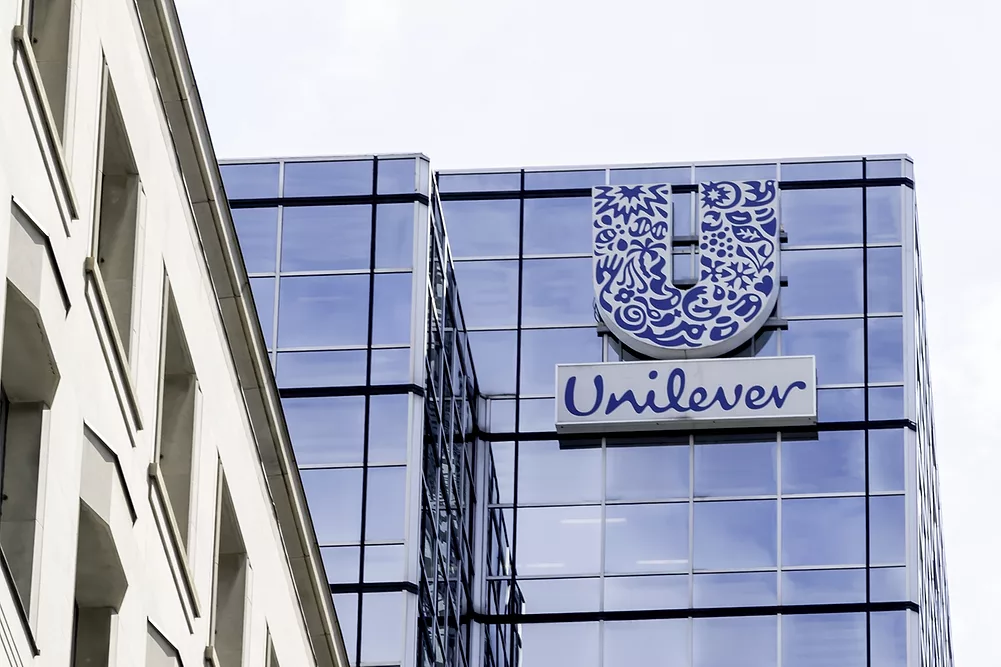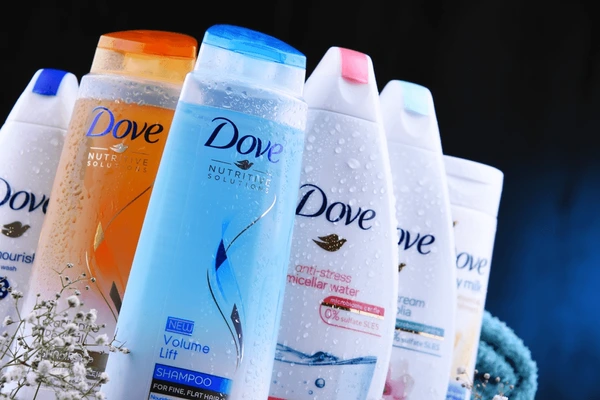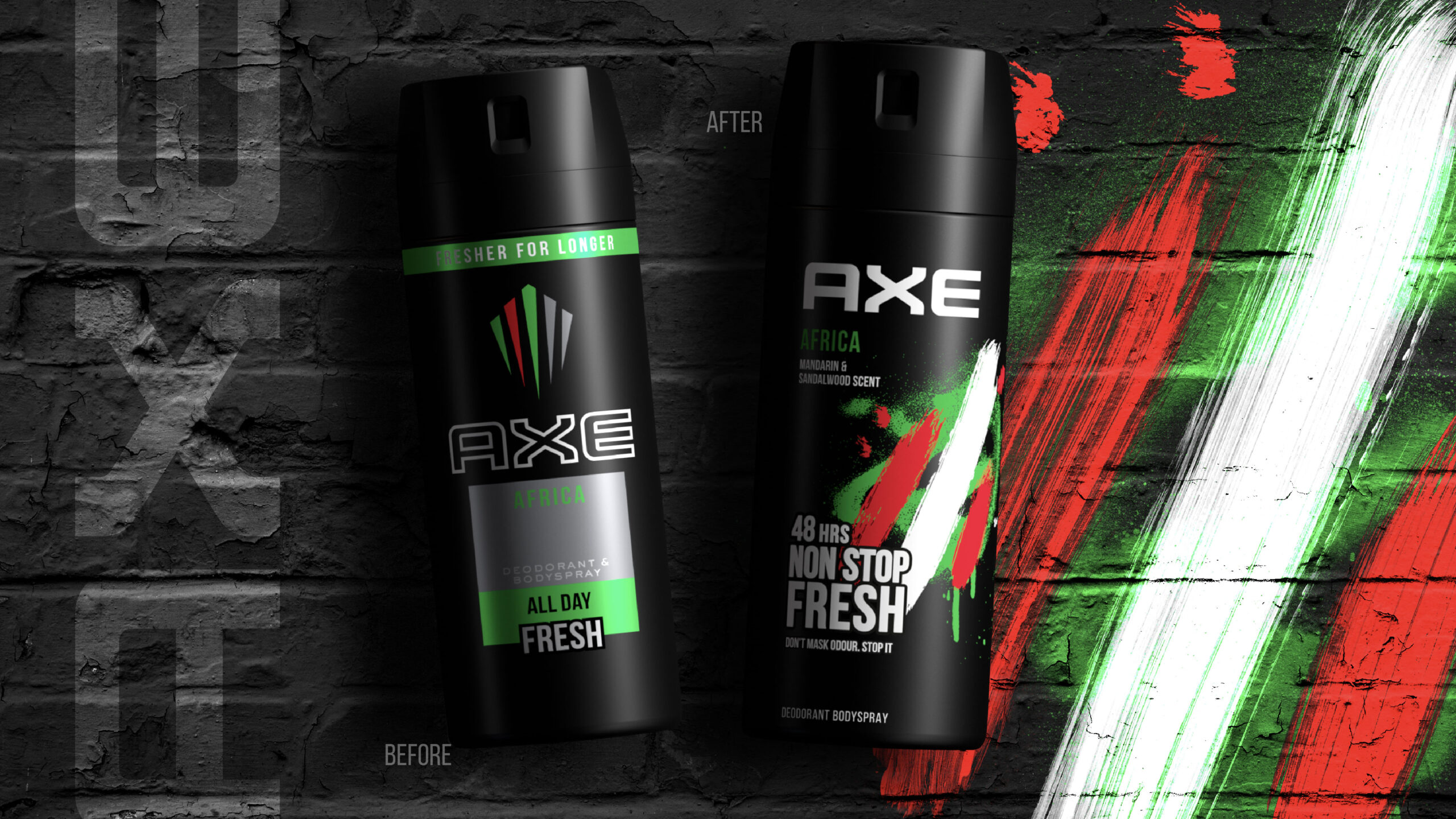
Unilever represents perhaps the most fascinating case study in modern marketing: a 150-year-old Anglo-Dutch conglomerate that somehow convinced consumers that buying soap, shampoo, and Ben & Jerry’s ice cream constitutes participation in global social justice. With over 400 brands across 190 countries, Unilever has mastered the art of making corporate capitalism feel like activism – and making it genuinely profitable.
The Reality Check: Unilever owns everything from Dove and Axe to Hellmann’s mayonnaise and Magnum ice cream bars. They’re essentially running a consumer goods empire disguised as a purpose-driven movement.
Unilever’s Sustainable Living Plan goes beyond just being a corporate responsibility initiative – it’s a savvy marketing move. By framing their brands as champions of positive change, they’ve turned everyday purchases into meaningful ethical decisions. When you buy Dove soap, you’re not just getting a product; you’re supporting body positivity. Opting for Ben & Jerry’s? You’re backing social justice. It’s consumerism with a conscience, and it works beautifully.
Here’s where Unilever gets interesting: they simultaneously market Dove’s “real beauty” message and Axe’s hyper-masculine fantasy advertising. Different brands, different values, same parent company. It’s like being the world’s most successful marketing multiple personality – and somehow making it coherent.
Unilever really shines when it comes to “glocal” marketing—they manage to keep their brand consistent while also tailoring their approach to fit local markets. Their campaigns have a genuine local feel, all while pushing forward the broader global brand story. It’s cultural sensitivity meets corporate efficiency, executed at massive scale.
Unilever rarely talks about what their products do – they focus on what their products mean. Dove campaigns address self-esteem, not moisturizing properties. Lipton ads sell moments of connection, not tea quality. They’ve essentially made advertising feel like therapy sessions with purchase recommendations.
Unilever effortlessly brings together traditional advertising, social media initiatives, influencer collaborations, and experiential marketing. Their campaigns don’t just appear across multiple channels – they’re specifically designed for cross-platform amplification.
Unilever has cracked the code on mass customization by using advanced consumer data analysis to craft personalized messages that resonate on an individual level, even when reaching billions of people. Through smart audience segmentation and dynamic content creation, they’ve managed to make each consumer feel special.

Unilever truly shines in how they handle brand relationships without stepping on each other’s toes. They’ve crafted unique brand identities that resonate with various consumer groups, all while keeping their portfolio in sync. It’s like conducting a symphony where each instrument plays its own tune, yet the entire performance comes together beautifully.
Unilever pioneered the integration of social purpose into brand marketing at scale. They demonstrated that consumers will pay premiums for brands that align with their values – and that purpose-driven marketing drives both loyalty and profitability.
Unilever’s strategy has really paid off: their sustainable living brands are growing at a remarkable rate, 69% faster than the rest of their business. Plus, their purpose-driven campaigns are consistently beating traditional product-focused ads when it comes to engagement and conversion metrics.
Unilever really stands out for a few key reasons: they know how to harness the power of purpose-driven marketing, manage a diverse portfolio of brands effectively, and blend global strategies with local execution seamlessly. They’ve demonstrated that more and more consumers are choosing brands that align with their values, rather than just focusing on the functional benefits.
Their success shows that today’s marketing goes beyond just pushing products – it’s really about inviting people to be part of communities and movements that resonate with their identities and dreams.
Analyzing complex multi-brand marketing strategies like Unilever’s? StudyCreek offers comprehensive resources for students tackling portfolio management and purpose-driven marketing case studies.
Need deeper academic support with your marketing coursework and strategic brand analysis projects? DissertationHive provides expert assistance for students navigating challenging case studies and marketing theory applications.

Sample Assignment:
What makes personal marketing work? Why are Dove and Axe so successful at developing their brand equity?
Discuss the effectiveness of the overall marketing campaigns including advertising, personal selling, promotion,
events, and public relations strategies.
Is there a conflict of interest in the way Unilever markets to women and young men? Is it undoing all the good that might be done in the “Campaign for Real Beauty” by making women sex symbols in Axe ads? Discuss.
Recommend next steps for Unilever with respect to their marketing and Advertising strategies.
Sample Answer:
Unilever’s Marketing Strategy: The Case of Dove and Axe
Student Name
Course Title
Instructor
Date
Personal marketing is effective because it strikes an emotional chord with consumers, influencing how they see their identity, lifestyle, and values. When a brand successfully connects with what consumers aspire to, it creates a value that goes beyond just the practical benefits of its products. Take Dove and Axe, for instance; both brands have crafted unique campaigns that resonate with their audiences. Dove’s Campaign for Real Beauty has fostered brand loyalty by tackling issues of self-esteem and body image for women, while Axe has taken a more humorous approach, focusing on attraction and the formation of male identity.
The success of these campaigns hinges on their cohesive marketing strategies. Dove’s advertising stands out for its focus on inclusivity, showcasing real women instead of the typical models, which really helps to create a sense of authenticity. Their promotional efforts often feature workshops and educational events, with the Dove Self-Esteem Project being a key initiative for the brand. Additionally, their public relations campaigns boost Dove’s message, garnering media attention and establishing credibility through a strong commitment to social issues.
Axe has always leaned into edgy and provocative advertising, along with strong event sponsorships, to stay relevant with young men. Their promotional campaigns and public relations efforts are all about highlighting the brand’s fun, rebellious vibe. While these ads do a great job of grabbing attention, they also run the risk of reinforcing stereotypes that objectify women, which brings up some important ethical questions about how the brand communicates.
Here’s the dilemma Unilever faces. On one hand, they’re championing female empowerment with Dove, but on the other, they’re promoting hyper-sexualized portrayals of women in their Axe ads. This contradiction could really hurt the credibility of their corporate values. Nowadays, consumers are quick to spot inconsistencies in brand messaging, and this mixed message might erode trust in Unilever’s entire brand lineup.
As we look ahead, Unilever should focus on bringing its brand values together across all its product lines. This doesn’t mean stripping away the humor or boldness from Axe’s campaigns; instead, it’s about evolving those elements to showcase healthier and more progressive views of masculinity. Both Dove and Axe have a fantastic opportunity to leverage their strong brand presence by grounding their messages in authenticity and social responsibility, all while keeping their audiences entertained and engaged. By aligning their marketing and advertising strategies with shared values like respect, empowerment, and inclusivity, they can not only avoid reputational pitfalls but also build stronger loyalty among consumers.
Delivering a high-quality product at a reasonable price is not enough anymore.
That’s why we have developed 5 beneficial guarantees that will make your experience with our service enjoyable, easy, and safe.
You have to be 100% sure of the quality of your product to give a money-back guarantee. This describes us perfectly. Make sure that this guarantee is totally transparent.
Read moreEach paper is composed from scratch, according to your instructions. It is then checked by our plagiarism-detection software. There is no gap where plagiarism could squeeze in.
Read moreThanks to our free revisions, there is no way for you to be unsatisfied. We will work on your paper until you are completely happy with the result.
Read moreYour email is safe, as we store it according to international data protection rules. Your bank details are secure, as we use only reliable payment systems.
Read moreBy sending us your money, you buy the service we provide. Check out our terms and conditions if you prefer business talks to be laid out in official language.
Read more